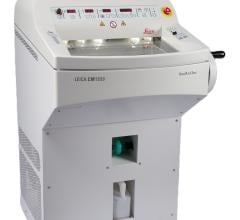
April 16, 2019 — In August 2018, a workshop was held at the National Institutes of Health (NIH) in Bethesda, Md., to explore the future of artificial intelligence (AI) in medical imaging. The workshop was co-sponsored by NIH, the Radiological Society of North America (RSNA), the American College of Radiology (ACR) and The Academy for Radiology and Biomedical Imaging Research (The Academy). The organizers aimed to foster collaboration in applications for diagnostic medical imaging, identify knowledge gaps and develop a roadmap to prioritize research needs. The group’s research roadmap has been published as a special report in the journal Radiology.1
“The scientific challenges and opportunities of AI in medical imaging are profound, but quite different from those facing AI generally. Our goal was to provide a blueprint for professional societies, funding agencies, research labs and everyone else working in the field to accelerate research toward AI innovations that benefit patients,” said the report’s lead author, Curtis P. Langlotz, M.D., Ph.D. Langlotz is a professor of radiology and biomedical informatics, director of the Center for Artificial Intelligence in Medicine and Imaging, and associate chair for information systems in the Department of Radiology at Stanford University, and RSNA Board Liaison for Information Technology and Annual Meeting.
Imaging research laboratories are rapidly creating machine learning systems that achieve expert human performance using open-source methods and tools. These artificial intelligence systems are being developed to improve medical image reconstruction, noise reduction, quality assurance, triage, segmentation, computer-aided detection, computer-aided classification and radiogenomics.
Machine learning algorithms will transform clinical imaging practice over the next decade. Yet, machine learning research is still in its early stages.
“RSNA’s involvement in this workshop is essential to the evolution of AI in radiology,” said Mary C. Mahoney, M.D., RSNA Board of Directors Chair. “As the society leads the way in moving AI science and education forward through its journals, courses and more, we are in a solid position to help radiologic researchers and practitioners more fully understand what the technology means for medicine and where it is going.”
In the report, the authors outline several key research themes, and describe a roadmap to accelerate advances in foundational machine learning research for medical imaging.
Research priorities highlighted in the report include:
-
New image reconstruction methods that efficiently produce images suitable for human interpretation from source data;
-
Automated image labeling and annotation methods, including information extraction from the imaging report, electronic phenotyping and prospective structured image reporting;
-
New machine learning methods for clinical imaging data, such as tailored, pre-trained model architectures and distributed machine learning methods;
-
Machine learning methods that can explain the advice they provide to human users (so-called explainable artificial intelligence); and
-
Validated methods for image de-identification and data sharing to facilitate wide availability of clinical imaging data sets.
The report describes innovations that would help to produce more publicly available, validated and reusable data sets against which to evaluate new algorithms and techniques. The authors note that to be useful for machine learning, these data sets require methods to rapidly create labeled or annotated imaging data.
In addition, novel pre-trained model architectures, tailored for clinical imaging data, must be developed, along with methods for distributed training that reduce the need for data exchange between institutions.
In laying out the foundational research goals for AI in medical imaging, the authors stress that standards bodies, professional societies, governmental agencies and private industry must work together to accomplish these goals in service of patients, who stand to benefit from the innovative imaging technologies that will result.
For more information: www.pubs.rsna.org/journal/radiology
Reference
1. Langlotz C.P., Allen B., Erickson B.J., et al. A Roadmap for Foundational Research on Artificial Intelligence in Medical Imaging: From the 2018 NIH/RSNA/ACR/The Academy Workshop. Radiology, April 16, 2019. https://doi.org/10.1148/radiol.2019190613


 February 13, 2026
February 13, 2026 









